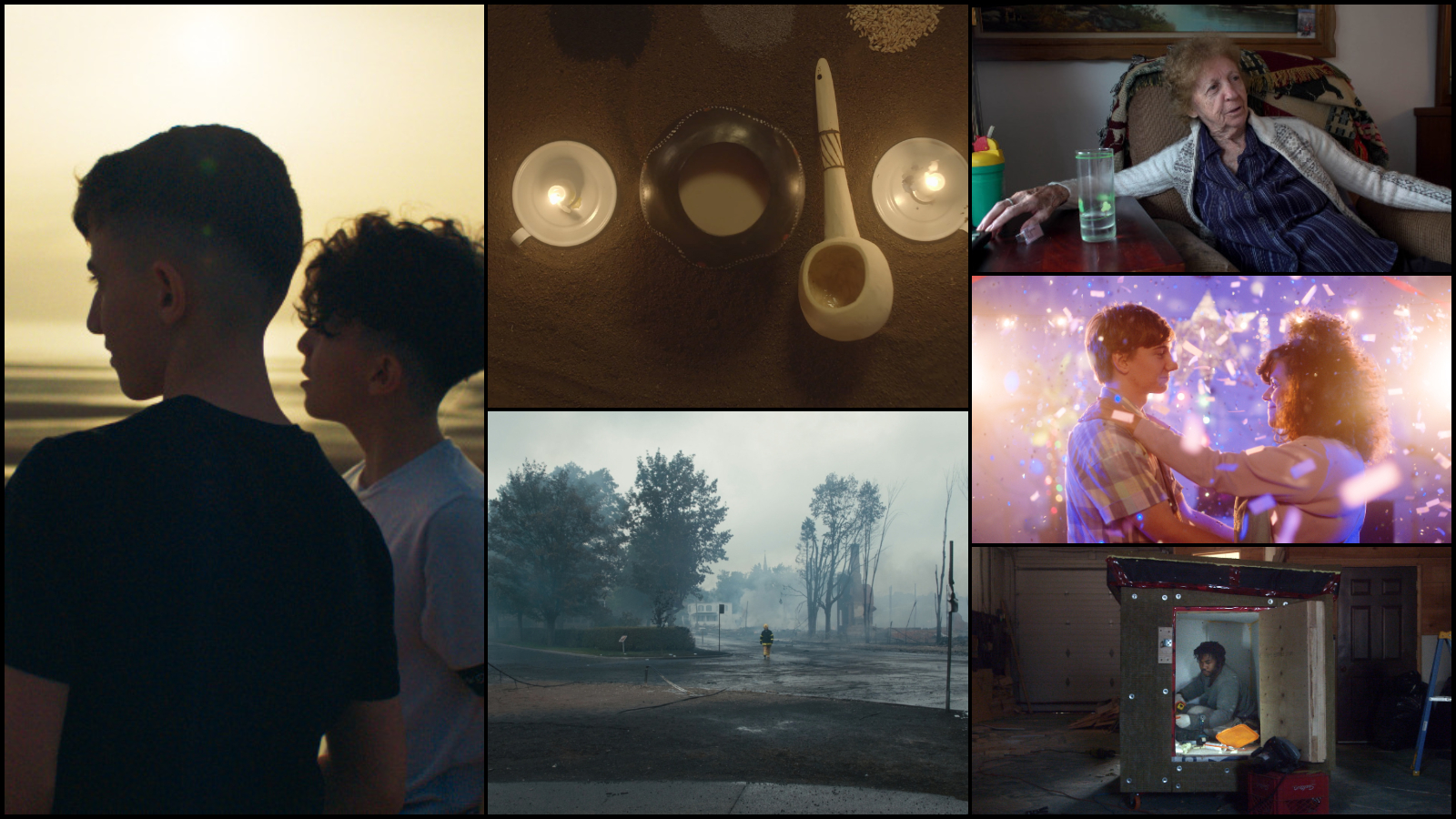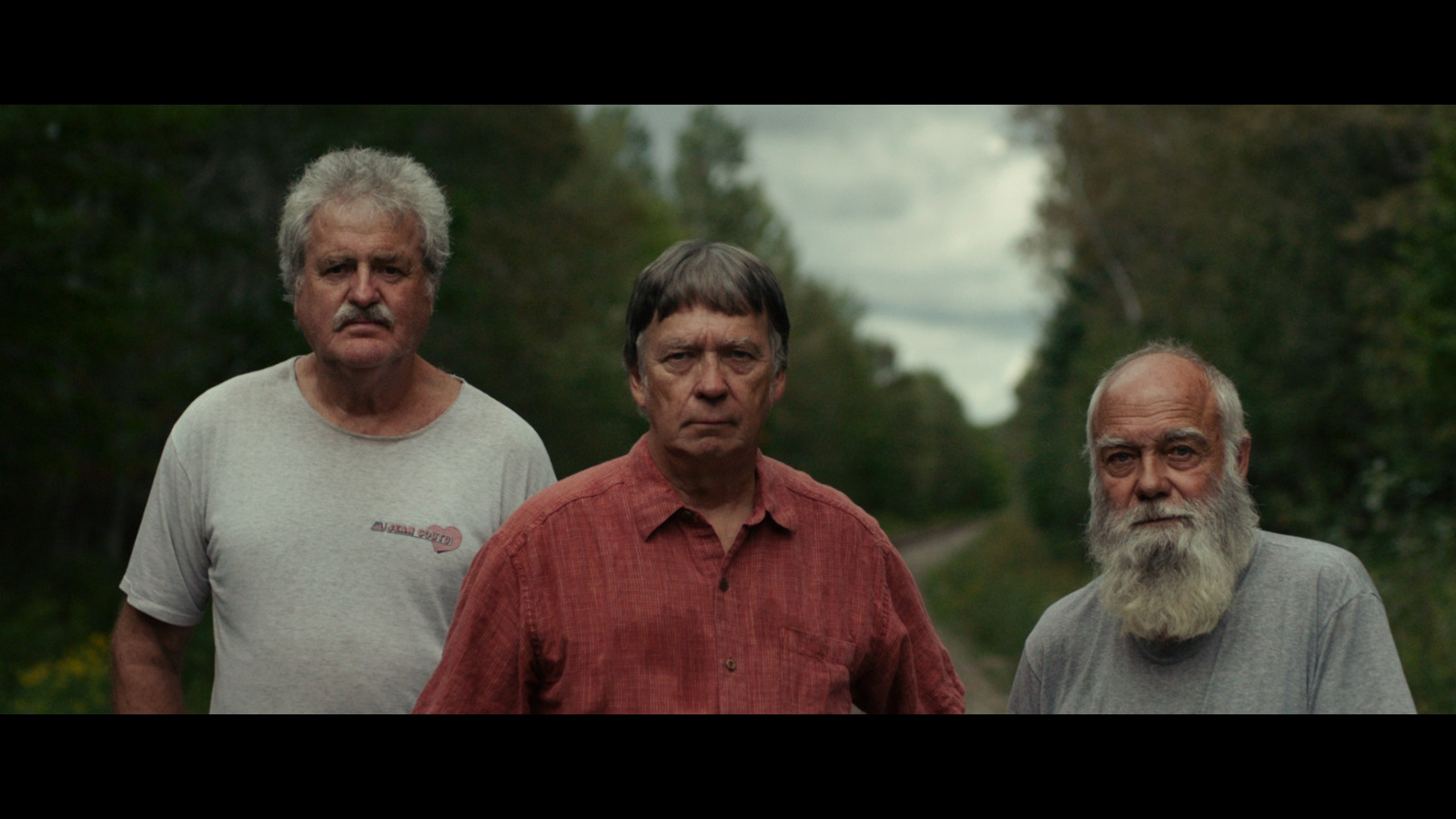Hot Docs enjoyed a return to form with its 2023 festival. After struggling somewhat with online iterations in 2020 and 2021, and doing a hybrid event last year, Hot Docs 2023 felt a lot Hot Docs 2017. It’s not back 100% to where it was in 2019’s pre-COVID success, but the 30th anniversary edition of the festival arguably felt closer to Hot Docs’ roots. In 2018 and 2019, Hot Docs was beginning to resemble TIFF in terms of noise and the number of cooks in the kitchen, but this year found a better balance between the industry and artistic sides of the festival.
Audiences generally turned out in high numbers for screenings throughout the festival. Hot Docs smartly reduced the number of screenings per title, down to two theatrical screenings from three pre-COVID, although some of the festival’s major titles, like Love to Love You, Donna Summer or Black Barbie, screened three times. Full houses featured filmmaker Q&As for most screenings, so Hot Docs was able to recapture the experience of sharing a film and engaging with the artists behind it—something with which all festivals struggled amid the Zoom fatigue of online iterations.
Other POV contributors will be reporting on the industry events, so this article will mostly focus on the film side. (I did take in a few industry events, such as DOC’s engaging DocuMentality panel on mental health and the excellent master classes with Elizabeth Klinck and Shane Boris.) Overall, I saw 46 features and a handful of shorts, so coupled with the 16 Hot Docs selections I saw during Sundance, I was able to see at least 62 of the festival’s 214 selections, or 28%. That’s admittedly down from the 60 films I sawing during Hot Docs 2019, but still a respectable sample.
Hot Docs’ Heavy Hitters
Overall, the best of Hot Docs was the best of Sundance. That’s not a slight for Toronto’s fest: My Sundance favourite, Milisuthando, was the first choice in my Hot Docs schedule. I am very pleased to say it holds up to repeat viewings and, obviously, plays even better on the big screen. Milisuthando Bongela’s personal exploration of apartheid in South Africa and the weights carried by people both Black and white remains the best doc of the year so far.
Hot Docs audiences turned up for Sundance docs like 20 Days in Mariupol, which drew raves from audiences and the few critics who covered the festival, while Still: A Michael J. Fox Movie and Stephen Curry: Underrated delivered some of the more high-profile events, but surprisingly didn’t crack the audience award rankings.
Perhaps the buzz for those two Apple docs revealed the biggest distinction between this iteration of Hot Docs and pre-COVID ones: the absence of distributors. In previous years, distributors from powerhouse streamers like Netflix and Amazon Studios/Prime Video and Canadian indies like Mongrel Media and Elevation Pictures would usually have a few high profile selections. This year, they one combined with Netflix’s crowd-pleasing The Deepest Breath. Aside from Game Theory Films’ Satan Wants You and some HBO titles like You Were My First Boyfriend and Donna Summer, few films were there to make a splash if they weren’t trying to make a sale. Many of the Canadian docs had broadcasters attached, but the broadcasters did little to assert their presence this year.
One notable acquisition, however, came with the news that levelFILM picked up the popular Praying for Armageddon for Canada. Directed by Tonje Hessen Schei and co-directed by Michael Rowley, the film explores the impact of religious fundamentalism on American politics.
The Canadian Films
On the Canadian front, though, the festival delivered several highlights. Moreover, the festival notably expanded the Canadian selections beyond Toronto. Most of the jury prize winners were directed by artists from Quebec: Denys Desjardins’ I Lost My Mom, Dominique Chaumont’s Veranada, Jean-Philippe Marquis’ Silvicola, Justine Harbonnier’s Caiti Blues, and Megan Durnford’s Last Respects. Meanwhile, Philippe Falardeau’s extraordinarily moving four-part series Lac-Mégantic: This Is Not an Accident arguably delivered the highlight on the Canadian front. It’s a deeply powerful work that examines the 2013 rail tragedy from all angles with an incisive eye for the systemic flaws that precipitated it. The film won the overall audience award at Hot Docs—an impressive gesture that proves that attendees weren’t interested in being pandered to.
Similarly, the winner for the Rogers Audience Award for Canadian feature, Someone Lives Here, directed by Zack Russell, easily captured the pulse of Toronto. The cinema verité portrait of Toronto carpenter Khaleel Seivwright and his efforts to provide shelter for the homeless amid Toronto’s growing housing crisis had the perfect timing for a Hot Docs premiere. It was easily one of the word of mouth hits of the festival and a programming choice that let Hot Docs double down on the role that the festival plays in engaging audiences with relevant stories happening in their own communities.
Examining Systems, Advancing Aesthetics
Other Canadian highlights included the jury winner for Best Canadian Feature, I Lost My Mom. The film examines the sorry state of long term care in Quebec as Denys Desjardins began documenting his mother’s experience pre-pandemic. However, he observes how COVID-19 devastated vulnerable seniors in a system that was designed to fail them. It’s a heartbreaking film, if one that comes too soon while the trauma of lockdown is still fresh.
Also strong was Sherien Barsoum’s potent exploration of systemic injustice in Cynara. The portrait of a Toronto woman wrongfully convicted of her daughter’s murder is a unique spin on true crime that favours substance over the sensationalism the genre usually sees. Alternatively, Satan Wants You by Sean Horlor and Steve J. Adams gave its own take on true crime convention with the jaw-dropper tale of a woman who claimed to have been abducted by Satanists. The festival found the flipside of the Satanic panic argument in Rama Rau’s Coven, which, like her 2016 festival opener The League of Exotique Dancers, draws upon women’s voices to challenge the status quo. The film features some memorable characters who share the growing interest in Wicca.
Another Canadian highlight was Terra Long’s Feet in Water, Head on Fire. Arguably the most adventurous film aesthetically, Long’s essay film whisks audiences to Coachella valley for an immersive and visually striking study of the land, its inhabitants, and the complicated histories within. It should enjoy a strong festival run. So too should Khoa Lê’s vibrant Mother Saigon. This portrait of Vietnam’s LGBTQ+ community is a radiant work that creates a cinematic space for its characters to be fabulous. The film doesn’t sugar-coat the situation for queer rights, but observes the resilience of the characters who live authentically in a traditional society.
International Highlights
On the international front, Hot Docs featured a number of notable titles with memorable characters, pressing themes, and innovative approaches. Highlights included Name Me Lawand, directed by Edward Lovelace. The film is an ambitious and remarkably empathetic study of a young Kurdish boy named Lawand in the UK who is learning British Sign Language. The film shares Lawand’s experience with deafness through an immersive sound design and ground-breaking visual interpretation. It plays out almost entirely in BSL and subtitles, and audiences enter Lawand’s world without missing a beat. It’s an empowering portrait of the role that communication plays in personal growth and connection.
Screening alongside Name Me Lawand in the International Spectrum was Cecilia Aldarondo’s very fun You Were My First Boyfriend. The film takes a hybrid approach to memory and trauma with its film-within-a-film conceit. Aldarondo revisits moments from her high school years as scenes from teen movies. Acting out old memories with former classmates proves unexpectedly cathartic as Aldarondo unpacks the weight that seemingly inconsequential moments have on our lives.
Also moving was Penny Lane’s inspired and offbeat doc Confessions of a Good Samaritan. The film follows Lane across her adventures with kidney donation and explores the role of altruism. Lane again delivers a dextrous sense of play with the materials. But opens up the story in an intensely personal way as she considers the place for selfless acts in human nature. It’s one of her stronger works yet. Also dazzling was the Artscapes series standout Kanaval: A People’s History of Haiti in Six Chapters, while Jialing Zhang’s Special Presentations title Total Trust proved downright chilling.
Hot Docs Is Back
While Hot Docs might not have had as many high profile works, this year’s festival favoured a sense of discovery. One could see more risks taken in the programming with off-the-beaten-track choices like Upstream, Calls from Moscow, Lynx Man, International winner The Mountains, A Happy Man, and The Hearing among strong works that one likely won’t encounter elsewhere. That’s ultimately more satisfying than a bunch of Oscar-chasing streamer flicks. It felt good to be back in a sea of fresh discoveries.











